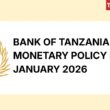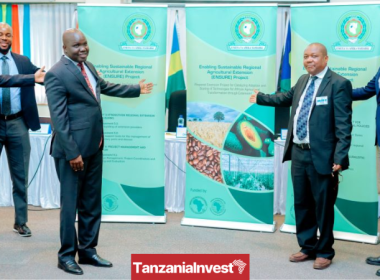AfDB
The focus of the African Development Bank (AfDB) in Tanzania is on infrastructure development and strengthening governance and accountability.
The Bank’s interventions under infrastructure development focus on improving both domestic and regional transport connectivity as well as access to electricity.
The focus of the Bank under governance is on improving financial management and institutional and capacity building support reforms to unlock private sector investments and finance for job creation.
Additionally, the AfDB prioritizes the energy sector which is a key growth sector according to the country’s national development plans.
AfDB Tanzania Projects
Tanzania is the second-largest beneficiary of the concessionary funding window of the bank, the African Development Fund (ADF).
In 2020, the AfDB approved grants totalling USD 9.5 million to strengthen responses to the COVID-19 pandemic in countries in East Africa and the Horn, and in the Comoros.
In 2019, the AfDB approved a USD 272.12 million loan to Tanzania for the construction of a new international airport in the capital Dodoma.
In 2018, the AfDB approved a loan of USD 123.39 million to the Government of Tanzania to finance part of the country’s North- West Grid 400 kV Nyakanaz – Kigoma power transmission line project.
In 2016, the AfDB approved the 2016–2020 concessional resource assistance package for Tanzania worth over USD 1.1 billion for infrastructure development and better governance.
AfDB Tanzania Economic Outlook
The AfDB expects Tanzania to see a drop in its GDP growth to 5.2% in 2020 and 6.3% in 2021, from the pre-COVID–19 estimates of 6.4% and 6.6%.
These estimates assume that the COVID–19 outbreak is contained by the third quarter of 2020, though it is expected to induce various negative macroeconomic effects to the Tanzanian economy, transmitted primarily through travel and tourism, commodity prices, trade, and foreign direct investment (FDI).
Inflation is expected to increase as the disruption in imported food supply chains due to travel restrictions and the depreciation of the shilling on account of lower export and tourism receipts offset lower domestic demand.
Reduced export earnings and FDI inflows are expected to further depreciate the shilling and contribute to a buildup in inflation.
The fiscal deficit is projected to widen as tax revenues fall with lower trade, travel, and tourism activity amid increased public spending to contain the pandemic and interventions to support the most vulnerable population and affected businesses.
The current account deficit is also expected to weaken to 4.6% of GDP in 2020 in the baseline scenario, compared with the pre-COVID–19 estimate of 4%.
Strengthening public health system preparedness in the short term—and improving healthcare infrastructure in the long term through hiring more health workers, investing in modern laboratories, and expanding hospital bed capacity—remain critical.
















